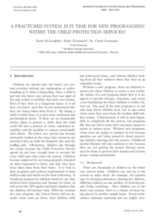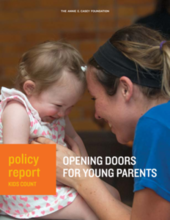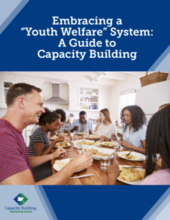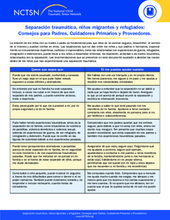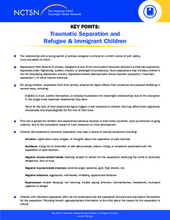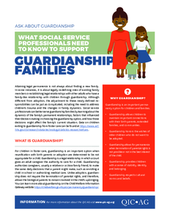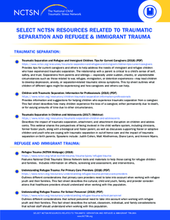Displaying 1501 - 1510 of 2222
This article explores current child protection services and programs in the United States and offers suggestions for development of new child protection programming to further meet the needs of vulnerable children.
This report from the Annie E. Casey Foundation reminds policymakers and child advocates in the US of the barriers that young families face. It examines national and state-level trends — highlighting areas of opportunity and concern — and then shares potential solutions that can help these families thrive.
This article from Children's Legal Rights Journal discusses the statistics and data regarding foster youth who are commercially exploited for sex, and examines the various reasons why foster care children represent such a large proportion of the victims.
Because foster parents play a critical role in supporting children in foster care, who often have experienced trauma, the Casey Foundation developed ARC Reflections, a nine-session program that child welfare agencies can use to train foster parents to better care for children who have had traumatic experiences.
This resource from the Capacity Building Center for States in the U.S. provides guidance on adapting child welfare services to better meet the needs of youth (ages 15 to 24) in care.
Este recurso proporciona consejos para los cuidadores y otros para ayudar a abordar las necesidades de los niños inmigrantes y refugiados que han experimentado la separación traumática.
This resource from the National Child Traumatic Stress Network provides key points related to traumatic separation and immigrant and refugee children, adapted from the NCTSN fact sheet Children with Traumatic Separation: Information for Professionals.
This guidance is designed for social service professionals to better serve guardianship families by learning about the dynamics of the family’s permanent relationships, factors that influenced their decision-making in choosing the guardianship option, and how those decisions might affect the family’s current situation.
This resource from the U.S. National Child Traumatic Stress Network provides tips for current caregivers and others to help address the needs of immigrant and refugee children who have experienced traumatic separation.
This document from the U.S. National Child Traumatic Stress Network (NCTSN) identifies existing NCTSN resources related to traumatic separation, refugee and immigrant trauma, and best practices in trauma-informed care for refugee and immigrant children and families.

